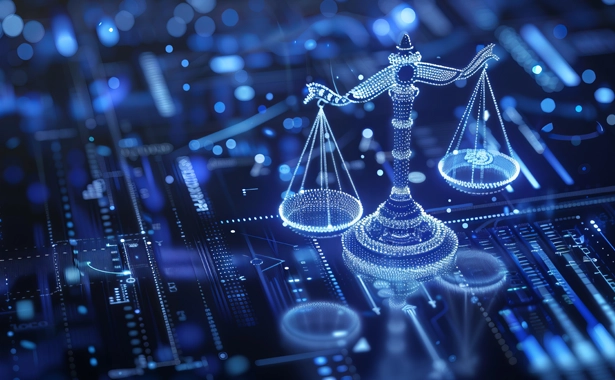
Leveraging Technology for Efficient Contract Drafting: How Innovations in Tech Enhance Legal Services
In the modern legal world, technology plays a pivotal role in enhancing efficiency and accuracy in contract drafting. The intersection of legal expertise and technological tools has allowed businesses, lawyers, and legal departments to streamline processes, reduce costs, and improve overall productivity. By integrating innovative tech solutions, legal professionals can create more accurate, standardized, and comprehensive contracts in less time. This article explores how technology has revolutionized contract drafting and how innovations in the field can further enhance legal services.
How has technology changed the landscape of contract drafting?
Technology has significantly impacted contract drafting by introducing software tools that automate and simplify the process. Legal professionals can now use AI-powered platforms that automatically generate legal documents based on pre-set templates and data input. These tools reduce human error and ensure that contracts comply with legal standards, making the process faster and more accurate. Automated document assembly systems and contract lifecycle management platforms have revolutionized contract drafting, enabling professionals to generate personalized documents in minutes rather than hours or days.
As companies and legal firms face the pressure of high volumes of contracts and tight deadlines, the integration of technology ensures a streamlined workflow. By leveraging these tools, professionals can focus more on complex legal analysis, while routine tasks are handled by smart systems, leading to greater efficiency and fewer opportunities for mistakes.
How do AI and machine learning enhance contract drafting?
AI and machine learning (ML) are transforming the way contracts are created, reviewed, and analyzed. These technologies use vast amounts of historical data to predict terms, identify risk factors, and even suggest alternative clauses to be added to contracts. For example, AI tools can automatically detect common legal terms, flag non-standard provisions, and recommend revisions to ensure compliance with regulations.
Machine learning algorithms continually improve by learning from previous contracts, making each document drafting session smarter and more efficient. Through pattern recognition, AI can analyze previous legal language used by professionals, adapting contracts to suit specific needs without compromising legal validity. This level of automation minimizes the manual labor involved in contract drafting and enhances the overall productivity of legal teams.
What are the benefits of legal tech platforms for contract drafting?
Legal tech platforms are designed to help lawyers draft contracts more efficiently by combining automation, cloud-based access, and collaboration tools. These platforms provide a central hub where legal teams can access templates, draft contracts, track revisions, and collaborate in real-time. By centralizing all contract-related work, legal professionals can streamline processes, cut down on time spent searching for documents, and enhance communication within their teams.
Moreover, these platforms offer integrated e-signature features that enable clients and stakeholders to sign documents digitally, speeding up the contract finalization process. The ability to track document status and revisions in real-time also minimizes the risk of human error, ensuring that everyone involved in the contract process is on the same page.
One of the significant advantages of using legal tech platforms is that they provide access to legal writing services that enhance the quality of the contract language. These platforms help legal professionals ensure that their contracts adhere to the highest standards, which is critical for mitigating potential legal risks. By using these services, businesses can rest assured that their contracts are written with clarity, precision, and compliance.
How will future innovations shape the contract drafting process?
The future of contract drafting looks promising, with innovations in blockchain, smart contracts, and even further advancements in artificial intelligence. Blockchain technology, for example, provides an immutable ledger for contract execution and management, ensuring transparency and reducing the risk of fraud. Smart contracts, which execute automatically when certain conditions are met, are already being used in various industries to facilitate faster and more reliable contract enforcement.
As technology continues to evolve, the next wave of innovation could lead to even more streamlined contract drafting processes. For instance, AI could soon predict potential legal disputes before a contract is even signed, allowing businesses to adjust terms proactively. Moreover, with the integration of machine learning into contract management systems, future platforms could be capable of autonomously managing the entire contract lifecycle—from drafting to execution and enforcement—while maintaining compliance with legal standards.
Read Also: How a Personal Injury Lawyer Can Maximize Your Compensation
Why should law firms and businesses adopt digital tools for contract drafting?
Adopting digital tools for contract drafting offers several advantages for law firms and businesses alike. First, digital platforms provide instant access to a wide array of contract templates, which saves time compared to manually drafting each document from scratch. These tools can also ensure greater consistency across contracts, helping businesses maintain uniformity in legal language and structure.
In addition, digital tools improve collaboration. Lawyers can easily share drafts, request feedback, and make revisions in real time, allowing for quicker decision-making. Businesses benefit from faster turnaround times, meaning they can close deals more quickly and efficiently. Additionally, the use of cloud-based contract drafting platforms ensures that all documents are stored securely and can be accessed remotely, which is increasingly important in today’s globalized, remote-working environment.
Conclusion
In conclusion, the integration of technology into contract drafting is not just a trend—it is a necessity for businesses and legal professionals striving for efficiency and accuracy in today’s fast-paced legal environment. By embracing AI, machine learning, and legal tech platforms, law firms and businesses can significantly improve the speed, accuracy, and compliance of their contracts. As we look to the future, further advancements in digital tools will continue to reshape how contracts are drafted, managed, and executed, offering even greater opportunities for efficiency and growth in the legal sector.



